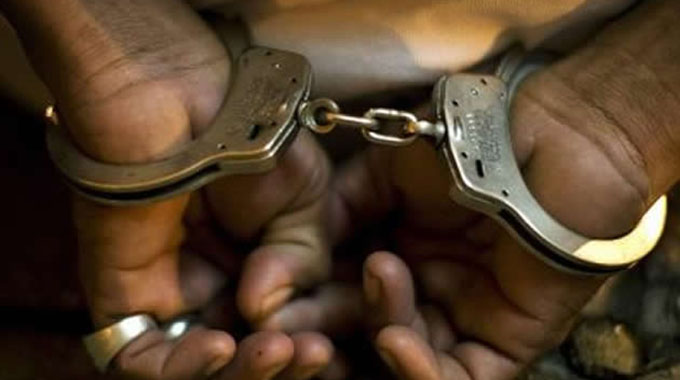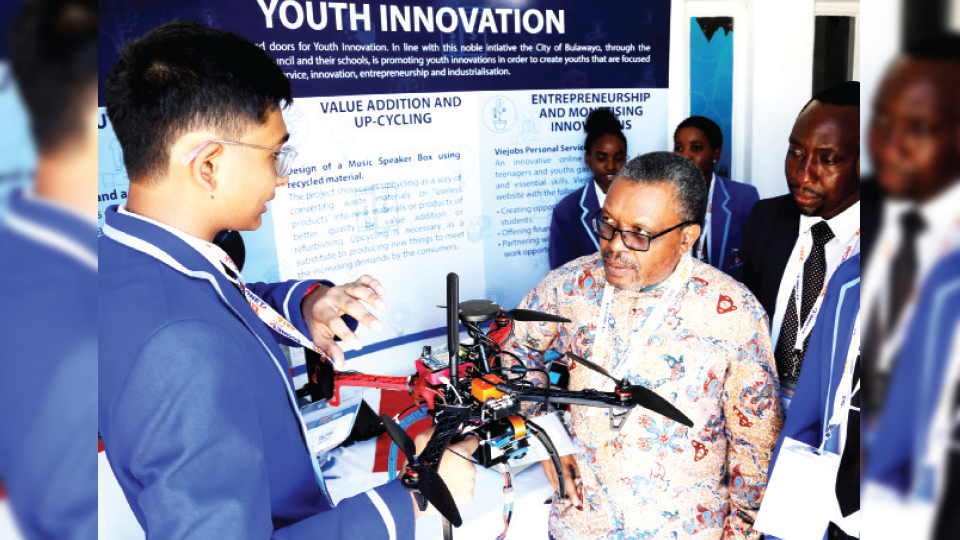Courts to exclusively deal with machete gangs set up

Mashudu Netsianda, Senior Court Reporter
THE Judicial Service Commission (JSC) has set up special courts to exclusively handle cases of violence perpetrated by machete-wielding gangs that are terrorising small-scale miners and communities around the country.
Machete gangs have been wreaking havoc at different gold mining sites across the country, causing deaths and injuries and threatening the entire gold mining industry.
Thieves are also taking advantage of the situation by arming themselves with machetes and unleashing violence in towns, cities and rural business centres.
In her keynote address while officially opening the 2020 legal year at the Bulawayo High Court yesterday, Deputy Chief Justice Elizabeth Gwaunza expressed concern over the surge in cases of violence by machete gangs, saying the judiciary stands ready to decisively deal with those involved in accordance with the law.
“As we speak, the country is gripped by another spate of violence perpetrated by the so-called machete gangs. The judiciary acknowledges the work being undertaken by law enforcement agencies in bringing perpetrators of that wave of violence to book. The courts stand ready to decisively deal with those accused of these offences in accordance with the law,” she said.
“Special courts to specifically try the cases have been set up in all affected areas across the country.”
DCJ Gwaunza urged key players in the administration of justice to complement each other in the fight against the menace.
“We call upon all stakeholders in the administration of justice to make concerted efforts to end this problem. Institutions mandated to protect citizens cannot sit back and watch a few rogue elements terrorise the entire nation for their selfish benefits.
“We hear stories of callous murders of ordinary Zimbabweans and law enforcement agents,” she said.
DCJ Gwaunza said organised terror gangs had the potential to create anarchy in the country if they are not rapidly neutralised.
“Citizens’ rights of freedom of movement and to conduct their affairs without fear and freedom of association are being violated with impunity by the gangsters. Courts must therefore demonstrate to the public that they are possessed of real capacity to enforce the law and punish crime,” she said.
DCJ Gwaunza said plans were underway to roll out anti-corruption courts to the country’s 10 provinces, two of which have already been set up at the High Court in Harare and Bulawayo.
The judges who will man the anti-corruption courts in the two cities will soon be posted to Uganda for training.
“In my address last year, I intimated that there were plans to cascade the anti-corruption courts to all 10 provinces of the country. I am happy to advise that in the past year, the Judicial Service Commission established anti-corruption courts in five additional provinces, Midlands included,” she said.
“Further, two anti-corruption courts have been established in the High Court at Harare and Bulawayo, with the identified judges earmarked for training by our Ugandan counterparts later this month.”
DCJ Gwaunza said the fight against corruption requires collective effort of all institutions involved in the administration of justice.
“Members of the public are equally expected to play their part. Investigators and arresting details are urged to continue honing their skills and conduct thorough investigations before arresting those suspected of engaging in corruption and bringing them to court. Knee-jerk arrests only serve to frustrate the ends of justice,” she said.
“The public will consequently feel let down by the system and such a scenario lends credence to the notorious accusations of ‘catch and release.”
The 2020 legal year official opening was held under the theme “Judicial Transparency and Accountability.”
DCJ Gwaunza said there was a need for the judiciary to be transparent and accountable to those it serves.
“As a consequence, the decision-making process by the judiciary requires, on the one hand, the independence of the judiciary while on the other, the public to have trust and confidence in the judicial system. Judicial power must therefore be exercised transparently and the judiciary should account for its actions in the discharge of its functions,” she said.
“Judicial independence, as a fundamental principle of constitutionalism and the foundation of the rule of law, must be carefully balanced with the need for transparency and accountability on the part of the judiciary to those it serves.” — @mashnets.











Comments